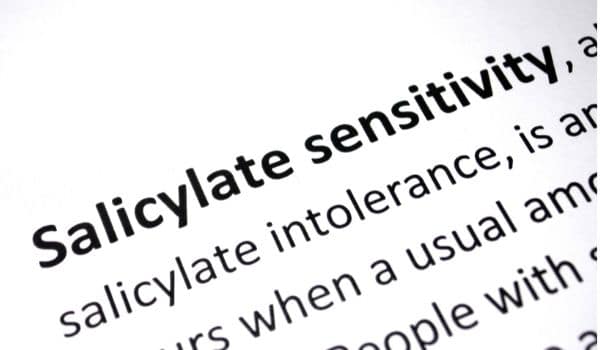It’s 6 a.m, the alarm goes off, it’s time to get ready for work, but you need some breakfast to give you energy before taking off.
You might be in a hurry and need a quick and simple solution. If you’re like me, a peanut butter jelly sandwich never fails!
But you suddenly notice you’re not going to the bathroom as often as you should.
Could it be the peanut butter?
The signs and symptoms of constipation include a sense of incomplete bowel movements and evacuation, infrequent and untimely bowel movements, and having difficulty in passing stools.
The main culprits usually are, lack of fiber, lack of hydration, or food sensitivities.
How do you know in which one do you fall in?
The easy answer, keep a food diary and monitor any changes in your stool after certain meals or drinks.
The not-so-short answer is what we will cover in this article. We’ll dive into the different scenarios to understand if peanut butter is the culprit for your constipation, or not.
Peanut Butter Nutrition

Peanut butter is a highly nutritious food containing healthy monosaturated fats, proteins, and other nutrients including Vitamin E, folate, and magnesium among others.
Still, peanut butter is known to cause bloating or indigestion when it is consumed in high amounts. It is due to the excessive amount of fat in it.
Some branded peanut butter packs and jars may also come with an excessive amount of sugar. It may cause a spike in blood glucose levels.
However, peanut butter is known to possess certain ingredients through which it can fight constipation.
Peanut Butter And Constipation
Peanut butter is rich in fibers, a food ingredient that is helpful in fighting constipation.
1 tablespoon of peanut butter may contain approximately 1.3 grams of fiber.
Consuming a teaspoon of butter will fulfill the 7% daily fiber consumption requirement for men, and 10% for women.
Fiber is considered to be a natural remedy for constipation as it can soften and loosen the stools.
However, do remember that you also need to consume adequate amounts of water to reap the health benefits of fiber. If hydration is not enough, you may still develop constipation due to the consumption of peanut butter.
Salicylates and Amines

People are also found to be sensitive to foods that contain amines and salicylates.
Peanut butter also contains these molecules and ingredients in moderate amounts like some other foods that are consumed more often.
Therefore, if you are sensitive to the salicylates and amines, you may develop constipation upon consuming peanut butter.
These compounds and molecules are mostly found in the skin of the peanut.
If the peanut butter is made using whole peanuts, it is more likely to cause sensitivity and constipation.
Intolerance To Peanuts
People are not able to tolerate and digest all kinds of food to the same extent.
However, food intolerance is not a food allergy.
A food that is not tolerated will not trigger an immune response and cause an allergy.
However, it will cause certain undesired symptoms including constipation. In most cases, people who do not tolerate peanuts are also not able to tolerate other nuts.
Restricting the Consumption of Peanuts
If you suspect that you are intolerant and sensitive to peanuts or get constipation upon its consumption, you should take a test to know if this might be the reason you are getting constipated.
The tests will be able to identify your sensitivity towards amines and salicylates. They will also reveal any intolerance towards peanuts.
The best approach is to remove peanut butter from your diet and stop its consumption until you are sure of its effect on your gastrointestinal tract and bowel movements.
Your physician will be able to provide you with more information in this regard once the tests are complete and the report is out.
However, you should not only restrict the consumption of peanut butter but also any other food item containing peanuts. The body will be able to remove all the potential compounds and molecules that may be found in peanuts, and that may cause you medical problems and issues including constipation.
If you find that your gut and bowel movements are normal and you do not suffer from constipation anymore upon avoiding the consumption of peanuts, you know that peanut butter and peanuts are the cause of constipation.
Final Thoughts
So does peanut butter cause constipation?
The answer to this question is a mixed response because as always, it depends.
Make sure to stay hydrated, eat enough fiber, and don’t overeat peanut butter.
Take a test to know if you have any type of sensitivity or intolerances.
You can also introduce other kinds of nuts to your diet upon removing the peanuts and try to know your tolerance and sensitivity towards these.
Cashew butter, almond butter, and other kinds of butter are viable options available to you and these can be used to replace peanut butter.
Try this tips and see how your constipation fades away.